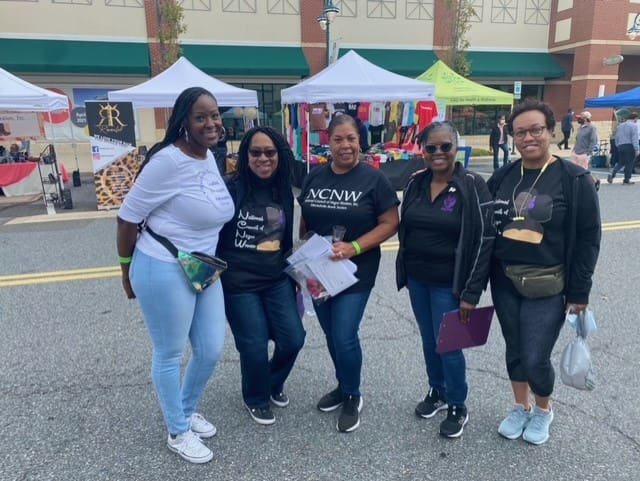
Empowering Black Women Worldwide
The National Council of Negro Women, Inc. (NCNW) was founded by the extraordinary educator and political leader Mary McLeod Bethune in 1935. Bethune, a child of former slaves, established NCNW to advocate for the national and international concerns of Black women, recognizing the need for unity and collective action to address the challenges they faced.
NCNW’s Expansive Reach
Today, NCNW continues her legacy, representing the voices of nearly 4 million women worldwide, with 39 affiliated national organizations and more than 240 local sections dedicated to empowering African American women and their families.
Celebrating a Legacy of Vision and Impact
Mary McLeod Bethune
The Visionary Behind It All
Mary McLeod Bethune, a trailblazing educator and activist, was born on July 10, 1875, in South Carolina to Samuel and Patsy McLeod, formerly enslaved. A bright and determined young woman, Mary aspired to become a missionary in Africa after attending the Dwight Moody Institute for Home and Foreign Missions in Chicago.
Turning Barriers into Bridges
Unfortunately, racial barriers blocked this path, as Black missionaries were deemed "unnecessary." Undeterred, she redirected her passion to serve others through education and advocacy, igniting a lifelong mission to uplift Black communities.
Building an Educational Legacy
Mary’s commitment to education led her to establish the Literary and Industrial Training School for Negro Girls in Daytona Beach, Florida, with only $1.50. Beginning in 1904 with six students—five girls and her son, Albert—the school grew under her leadership, eventually becoming Bethune-Cookman College, which now enrolls over 4,000 students.
A Landmark in Education and Service
From 1936 to 1942, Mary balanced her role as president with national duties, serving part-time at the college. However, the demands on her health led to her stepping down in 1942. Today, the university stands as a testament to her dedication, with a 70-acre campus and alumni from 35 countries.
A Champion for Black Women and Voters
Mary McLeod Bethune was a dedicated advocate for women's rights and black voter registration. From 1917 to 1925, she led the Florida chapter of the National Association of Colored Women (NACW), working relentlessly to register black voters. She also served as president of the Southeastern Federation of Colored Women’s Clubs (1920–1925), empowering Black women to fight for better opportunities.
National Recognition and Advocacy for Children
Her leadership earned national recognition, leading to her participation in the 1928 Child Welfare Conference convened by President Calvin Coolidge. Two years later, President Herbert Hoover appointed her to the White House Conference on Child Health, marking her influence as a trusted advisor on critical issues.
Founding the National Council of Negro Women
In 1935, Mary McLeod Bethune founded the National Council of Negro Women (NCNW) in New York City, uniting 29 organizations to drive change for women and their communities. Under her leadership, NCNW made a significant impact, including hosting the White House Conference on Negro Women and Children in 1938, which highlighted the vital role of Black women in democracy.
Black Women in the Military
During World War II, NCNW championed the inclusion of Black women as military officers in the Women’s Army Corps, breaking barriers and showcasing their capability to serve in leadership roles.
Public Leadership in the National Youth Administration
In 1936, Mary became Director of the Division of Negro Affairs in the National Youth Administration (NYA), a federal program aimed at providing education and employment to young people. With support from the Works Progress Administration (WPA), the NYA created opportunities for Black students to access education and job training, helping underserved communities thrive.
In Memoriam
Mary McLeod Bethune passed away on May 18, 1955, at the age of 79, leaving an indelible mark on history. Her home in Daytona Beach is a National Historic Landmark, while her Washington, D.C., residence in Logan Circle is preserved as a National Historic Site. A statue commemorating her contributions proudly stands in Lincoln Park, Washington, D.C., a testament to her enduring impact.
Carrying the Torch
Bethune-Cookman University continues to honor her legacy, educating students from across the United States and beyond. Over 12,900 graduates have walked its halls, carrying forward Mary McLeod Bethune’s vision of empowerment, education, and community building.
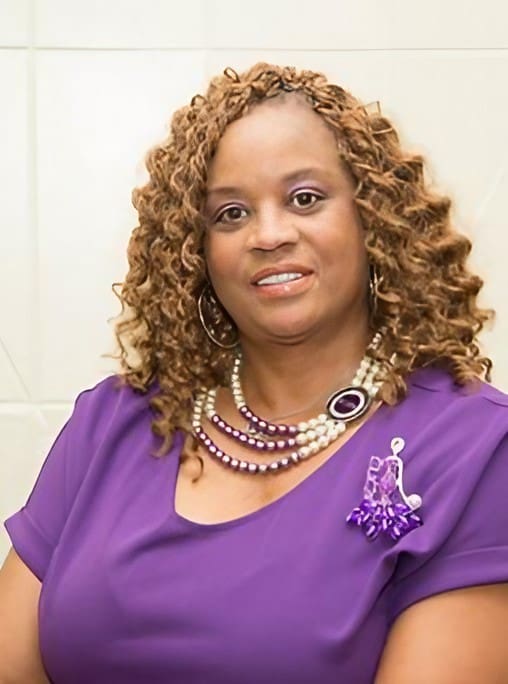
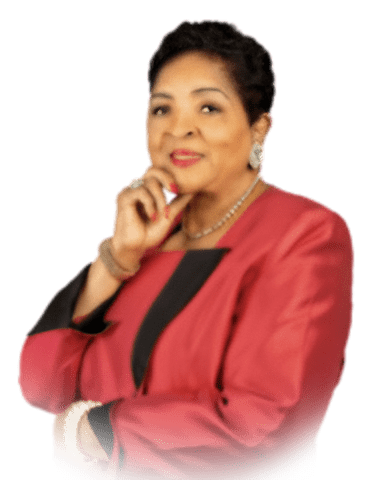
National Chair
Dr. A. Lois Keith
Dr. A. Lois Keith, a Legacy Life Member and Bethune Achiever, has committed much of her life to advancing the mission of the National Council of Negro Women (NCNW). Her journey with NCNW began with her active participation in numerous leadership roles, reflecting her unwavering dedication to the organization's vision.
Dr. Keith's Leadership at the National Level
In 2016, Dr. Keith was honored to serve as co-chair at the NCNW’s 57th National Convention, where she was elected National Vice President. She has played a pivotal role in various capacities, including as National Membership Chair under the leadership of both Dr. Dorothy I. Height and Ms. Ingrid Saunders Jones. In 2022, she was reappointed to the position of Vice President.
Key Roles in NCNW's Growth and Development
Her leadership extends beyond this role. Dr. Keith was an integral part of the NCNW Transition Team and co-chaired the 60th Biennial National Convention. She has also held key positions such as Executive Member-at-Large, member of the National Nominating Committee, National Recertification Committee, and National Assistant Secretary. Additionally, Dr. Keith co-chaired Membership and is a proud member of the President’s Circle.
Local Leadership and Advocacy for Education
Dr. Keith’s contributions extend to her local DeKalb Section, where she held various leadership roles, including Chair of the Leadership Committee, President, 1st Vice President, 2nd Vice President, Secretary, and Assistant Secretary. She is also a charter member of the DeKalb Pacesetters Life Guild. Outside NCNW, Dr. Keith is a passionate advocate for equitable education, working tirelessly to ensure fair opportunities for all.
National President & CEO
Shavon Arline-Bradley
Shavon Arline-Bradley is a seasoned leader with 21 years of expertise spanning healthcare, equity, diversity & inclusion (EDI), government affairs, and executive leadership. As the founding principal and CEO of R.E.A.C.H. Beyond Solutions, she has built a successful public health, advocacy, and leadership firm focused on EDI, political strategy, organizational development, risk management, and technical assistance.
Expansion Across Diverse Sectors
Under her leadership, the firm has seen impressive growth, expanding its client base to include federal agencies, foundations, corporations, non-profits, and political candidates across the U.S. and the Netherlands.
Leadership Experience and Impact
Before founding R.E.A.C.H. Beyond Solutions, Rev. Arline-Bradley made significant contributions in various prominent roles. She served in the Office of the U.S. Surgeon General and held leadership positions at the NAACP, including Executive Vice President of Strategic Planning & Partnerships and Chief of Staff. In these roles, she managed a portfolio exceeding $30 million and directed health programs for more than 2,200 chapters and over 500,000 members, furthering the impact of the organization’s mission.
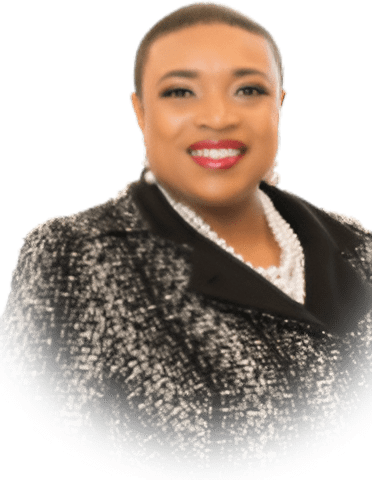
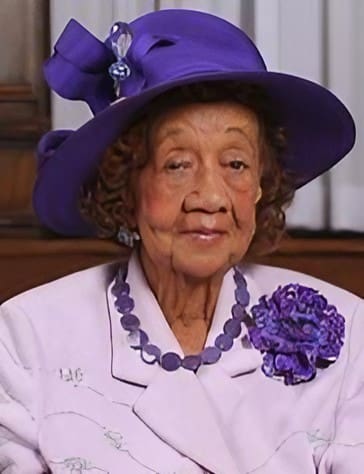
About Dr. Dorothy I. Height
Early Life and Education
Born on March 24, 1912, in Richmond, Virginia, Dorothy I. Height was raised in Rankin, Pennsylvania. The daughter of James Edward Height, a building contractor, and Fannie Borroughs Height, a nurse, Dorothy was encouraged from a young age to pursue excellence.
From Barnard to NYU
After graduating from Rankin High School, she faced a setback when Barnard College denied her admission, citing a full quota of Black students. Undeterred, she attended New York University, where she earned her undergraduate degree in 1932 and followed it with a master’s degree in educational psychology the following year.
Rising to Prominence
In 1938, Dorothy Height was selected as one of ten young people to assist First Lady Eleanor Roosevelt in planning the World Youth Conference. Through Roosevelt, Height was introduced to Mary McLeod Bethune, who invited her to join the National Council of Negro Women (NCNW). That same year, Dorothy worked for the YWCA, advocating for improved working conditions for Black domestic workers, a cause that propelled her into national leadership within the organization.
Leadership in Civil Rights and Advocacy
Height's career was marked by her unwavering commitment to civil rights and advocacy for Black women. From 1946 to 1957, she served as the National President of Delta Sigma Theta Sorority, and in 1957, she was elected President of the National Council of Negro Women, a position she held for four decades. During her tenure at NCNW, she founded the Black Family Reunion in 1986, an annual celebration on the National Mall in Washington, D.C., honoring Black families and culture.
A Trailblazer in Civil Rights
Height’s influence extended beyond her role at NCNW. She chaired the Executive Committee of the Leadership Conference on Civil Rights, the largest civil rights coalition in the U.S. Known for her dignified presence and signature style, she became a symbol of resilience and empowerment for generations of women and civil rights activists.
(H3) Honors and Recognition
Dorothy Height’s contributions were recognized by numerous prestigious awards, including the Medal of Freedom, presented by President Bill Clinton in 1994. She was a revered figure in American history, honored as a guest at President Barack Obama's inauguration in 2009. Her legacy was cemented with the passage of the "Dorothy Height Bill" by President Obama in December 2010, which designated a Washington, D.C., post office in her name.
Legacy and Passing
Dorothy I. Height passed away on April 20, 2010, at the age of 98. Her homegoing celebration was attended by dignitaries, including President Barack Obama and First Lady Michelle Obama, former President Bill Clinton, Secretary of State Hillary Clinton, and a host of others. Height’s remarkable life continues to inspire those who work toward racial equality, women's rights, and social justice.

